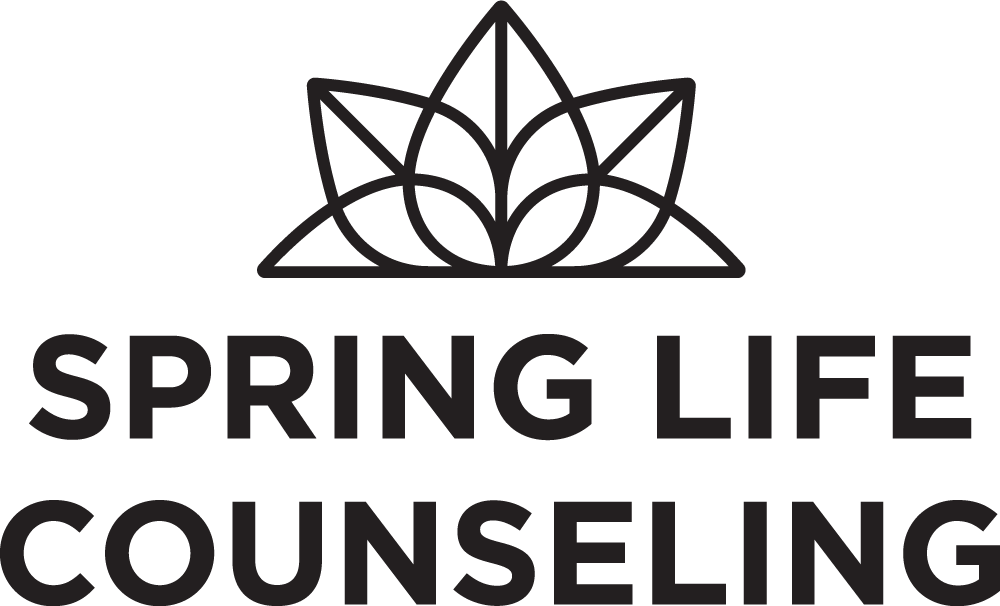How to Grieve When Someone You Love Dies
"Some things in life cannot be fixed. They can only be carried." -Megan Devine
Someone I love died this week. My sweet friend, Julie McGill Bauman. Because helping other people deal with grief helps me deal with my own, I want to share some of my thoughts and feelings as I wade through this process, and while it is fresh on my heart and mind.
I've written on grief in a broader sense a few times, but because I believe it's something we all should do regularly and a thing no one does very well, I feel like it's a topic I'll come back to again and again. I generally use "grief" in a pretty broad sense (meaning anything from grieving a job loss, to a break up, to a dream...etc.) but today we will exclusively be using the word as it pertains to death. Wretched, awful, impossible to resolve...death.
Sometimes grieving someone's death starts before they die. This was true for me in regards to Julie, if only briefly. A few weeks ago, I spoke on the phone with her, when she found out that her first round of surgery and chemo had been effective in dealing with the cancer they knew about, but not in preventing new cancer from growing. At this point, she said, "they're calling it 'terminal' but still acting like it could be treated for several years. I'll just always be fighting it to some degree or another." I took that to mean that there would be a difficult road ahead, but a road ahead nonetheless. I told her, "Well...no matter what happens, I want you to know that I won't be afraid and pull away. So call me any time for whatever." <Silence.> "Ok."
This brings me to my first point of what to do when you're grieving:
Be brave. Even when you're scared. Look your fear in the eye. You won't regret showing up and being present.I fully believe that the above comments between Julie and I was the reason she called me last Sunday night late. She could hardly speak but we connected one last time. At that point, I still didn't understand how dyer the situation was. But she did, and I'm so thankful she knew I'd answer, even though I was afraid when my phone rang.
The second thing to do when you're grieving a death:
Don't disengage to self protect.
Of course you'll want to disengage and at times you'll need to. (I had to see some clients a few hours after learning of Julie's death.) But return to your grief frequently and fully until the intensity subsides, and then regularly, to see it through. Your alternative here is to numb your pain. And truly, no goodness comes from that. You don't do yourself or the one you love any favors by attempting to minimize your loss in any way. If you avoid it and stuff it down, it'll crop back up in some way, and it won't be positive. Weep and eat. This is the essence of grieving.Mourning death happens in the midst of regular life. You're processing in between loads of laundry and making lunch. Some moments are filled with grief and others look surprising like your every day life, in the midst of your heartache. This is normal. Processing death is incredibly non-linear. Do what you need to do, but return to the loss, rather than just daily tasks to disengage and distract yourself.Some of you reading this may be closer to the epicenter of the loss, and therefore you find the idea of "mourning in the midst of regular life" impossible right now. I understand. Take your time. Be kind to yourself. Stay in the darkness as long as it takes until you feel like you can come up for air. There is no fixing this...only managing the loss. Each day that you're able, do the next logical thing. Once the initial shock begins to wear off, the path forward will eventually emerge. I wish there were better news to tell you. I'm sorry.
The third thing to do when you're grieving a death:
Mourn your own way.
Nobody had the relationship that you had with the person you lost. Whether you're her mom, her sister-in-law, her niece, her coworker, her favorite checker at the grocery store, her friend who lived 10 hours away: you had a specific relationship with the one who died. So mourn in a way that fits your relationship with your loved one, and mourn in a way that fits your personality. Some people are "together" mourners. Other are "alone" mourners. Some need to "do stuff" and others need to sit shiva. Whatever is an authentic expression of your grief...do it. And don't judge others for doing what they need to do. There is no prize for being the best mourner. There is no exclusion for being the worst. Just stay in your lane, honor your relationship and mourn your own way. Fully. And to the best of your ability.
Lastly, don't minimize your pain or that of another's with cheap platitudes. "Everything happens for a reason." "Heaven needed another angel." "She's better off." "God's got a bigger plan."What a complete load of crap.These statements are either meant to minimize the loss so that the speaker can feel more comfortable, and/or they imply intent, which is very shaky ground theologically. God sometimes brings beauty from ashes. However, this was not the intent of the fire, but rather in spite of the fire.Death is awful. God knows this full well. Don't try to fix it. Just learn to carry it.This list is not exhaustive. There is no right or wrong way to grieve. We all just need to give it our best shot. May we all honor our loved ones as we learn to carry on with our lives.Counseling with a person removed from your grief can be a helpful option. If ever I can be of assistance, please contact me here.

